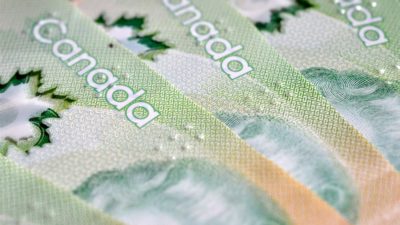The biggest enemy investors face in the investing journey is themselves. The stock market is unpredictable — there will be highs and lows — but over long periods of time, the market grows. It’s how we manage these uncertainties that will ultimately determine our success in the stock market.
Fortunately for young investors, we have an advantage. We can learn from others’ mistakes in the past and better equip ourselves for the long journey. However, in order to avoid the mistakes of others, we must first identify their errors.
Here are two common mistakes young investors should avoid.
Selling when the market crashes
Folks, a market crash is coming. I can’t tell you when, how bad it will be, or how long it is will last, but it’s inevitable and completely out of our control. However, we can control how we react when it arrives. This is a crucial time in an investor’s journey and can be the difference between astonishing returns and horrific losses.
The worst possible thing an investor could do in a market crash is cash out their investments and run scared. Although our portfolios will take a hit, we have to view the crash as a massive sale on fantastic companies.
If an investor had acquired $10,000 in shares in Royal Bank of Canada (TSX:RY)(NYSE:RY) in February 2009, the worst financial crash since the Great Depression in 1930, and reinvested the dividends, they would currently have over $51,000 in their investment accounts.
Stock market crashes should be welcomed by Foolish investors, as it’s the best opportunity to generate significant returns.
Buying IPOs
Many investors succumb to the market noise and try to get in on the ground level by acquiring shares in an initial public offering (IPO). After the IPO, there is typically an initial rise in the company’s stock price; however, they tend to underperform over the long term.
The most common time investors incur losses from IPO’s is six months from the initial issuance. Underwriters are typically required to hold on to shares off an IPO for at least six months. Then they sell them off after the stock has had its initial run-up, leaving the average investor in the dust.
In addition, studies have shown that the total stock market outperforms IPOs by four percentage points over the first five years after the initial issuance. Therefore, for Foolish investors like ourselves, we should be looking for other areas of the market to generate returns.
It should also be noted that not all companies are dogs after their IPO. Every publicly traded company had an IPO; however, it’s better to evaluate companies with more than five years on the market. Investors are better off investing in companies with proven track records and have demonstrated that they’ll be around for the long haul.
Foolish bottom line
The stock market requires great intestinal fortitude. Those who stick to the plan and maintain a long-term view will harness the true power of compounding interest. Young investors: stay the course, trust the process, and avoid the mistakes noted above on your journey to financial freedom!
For those about to Fool, we salute you!







